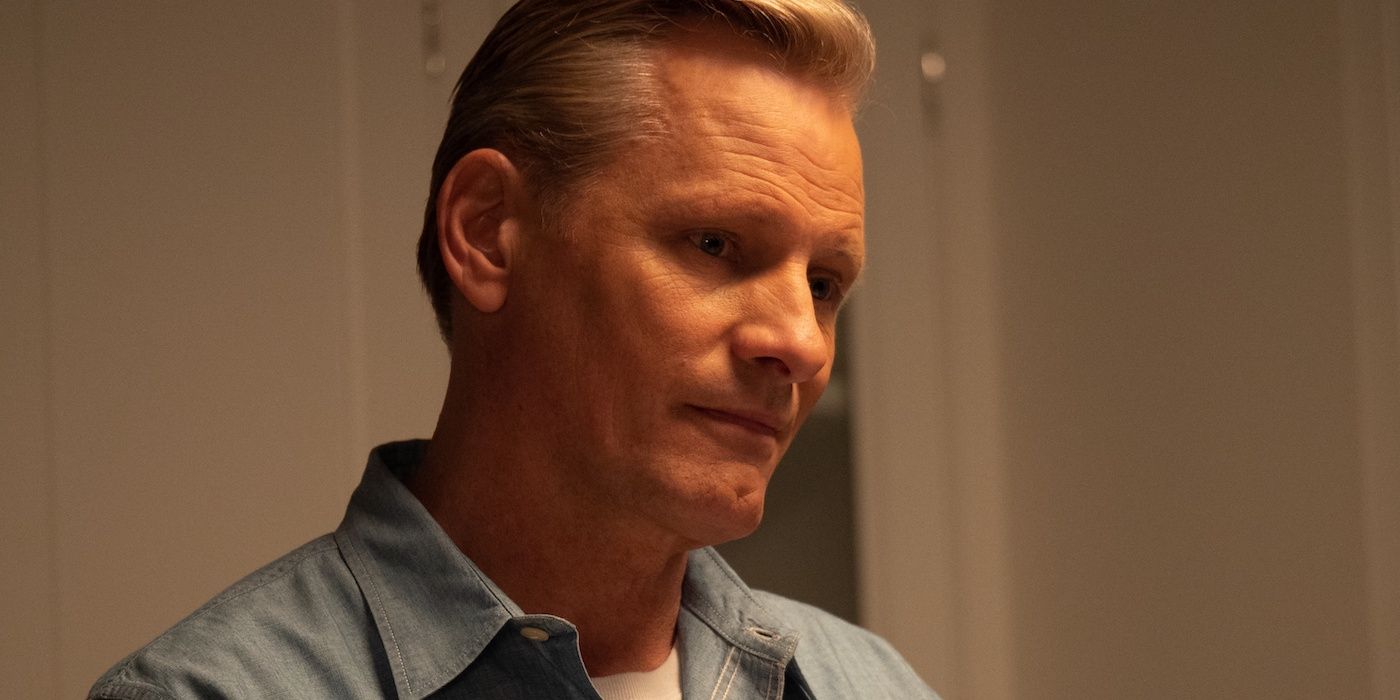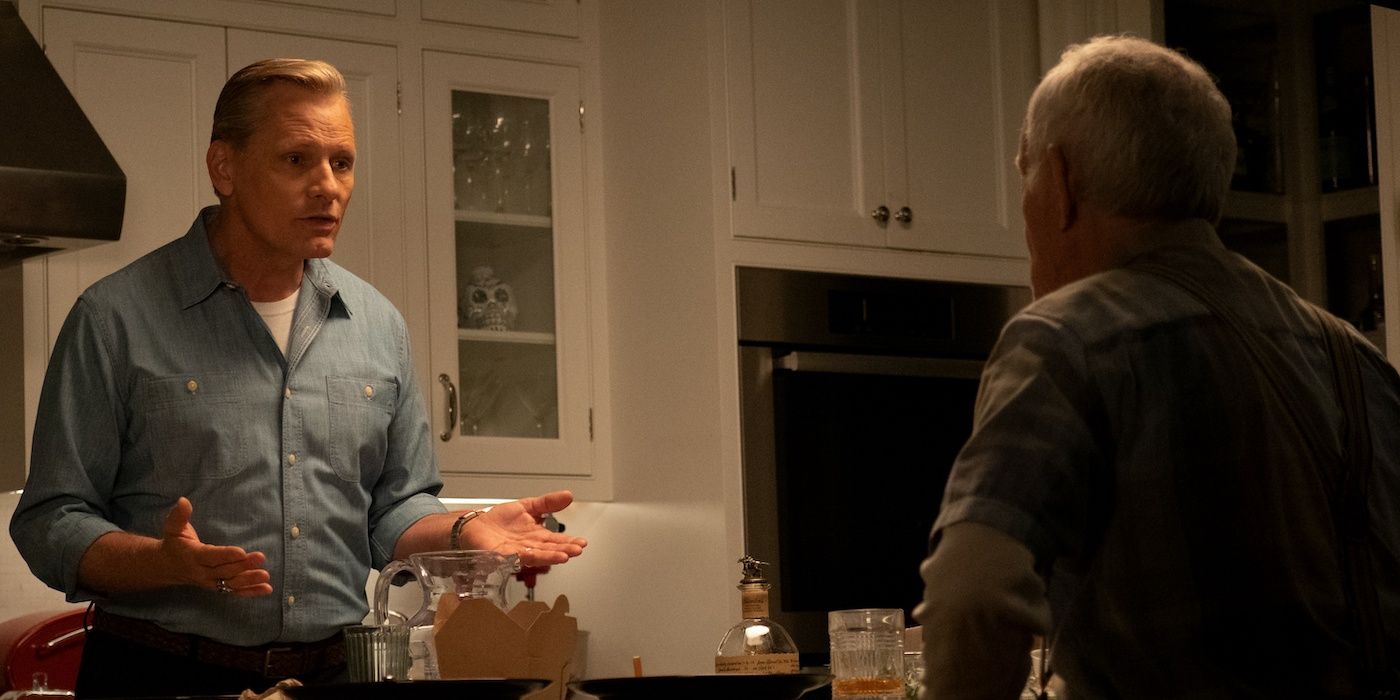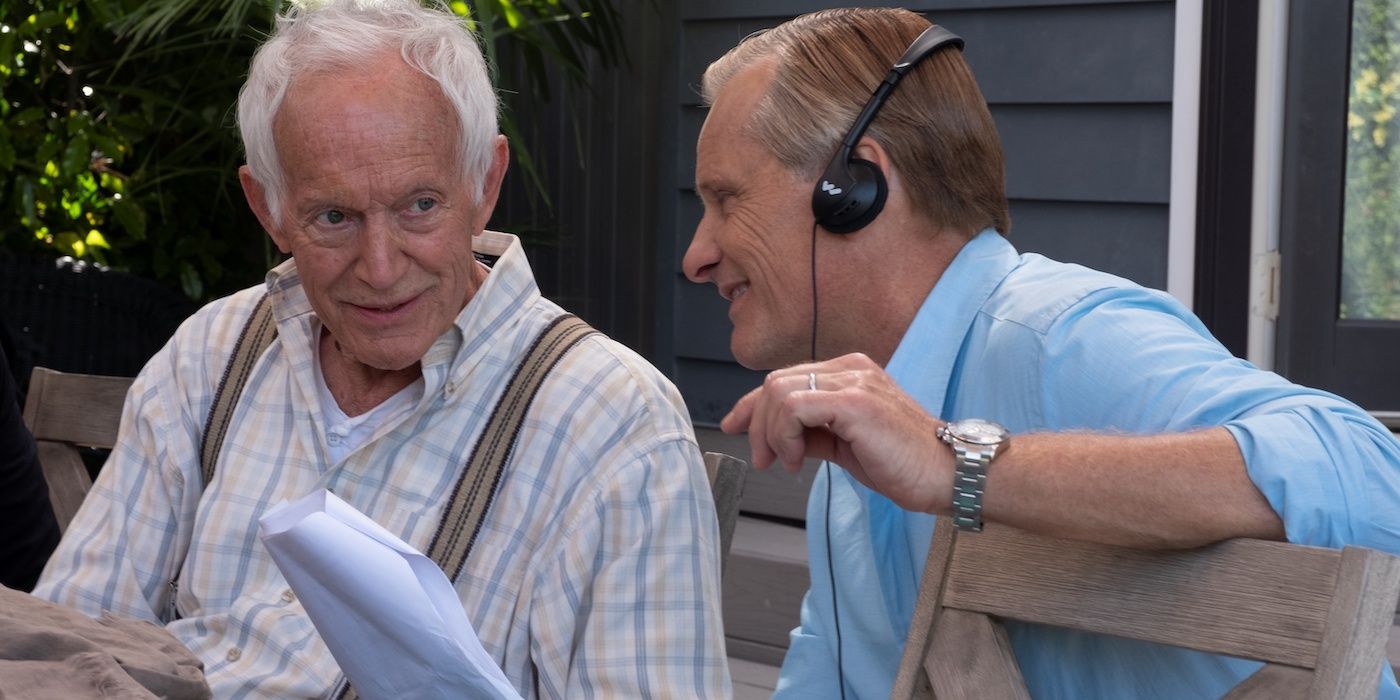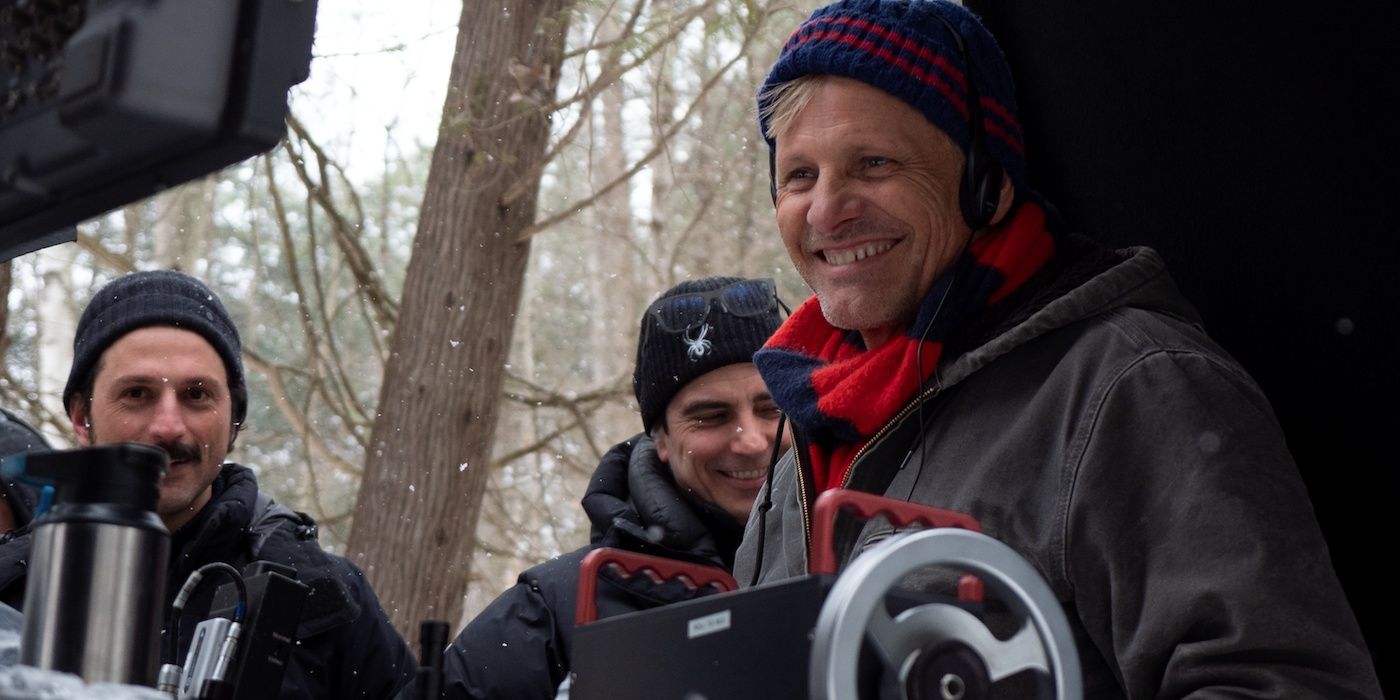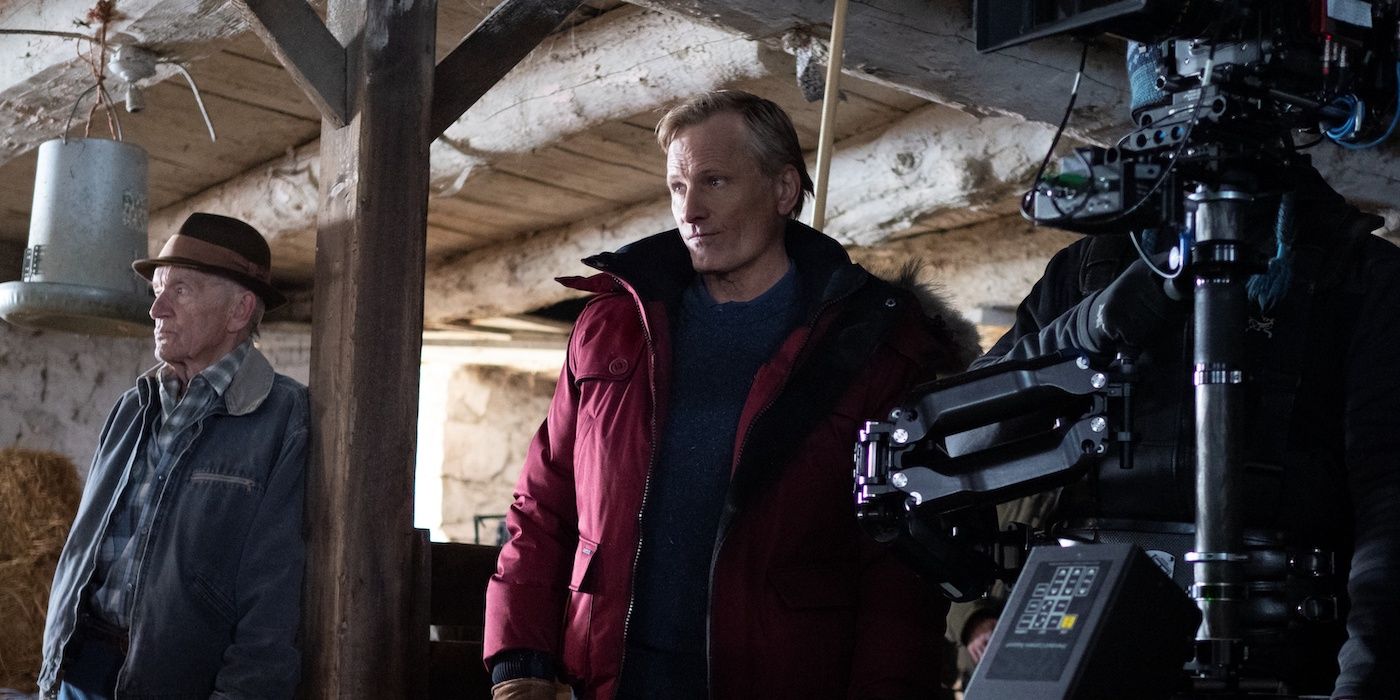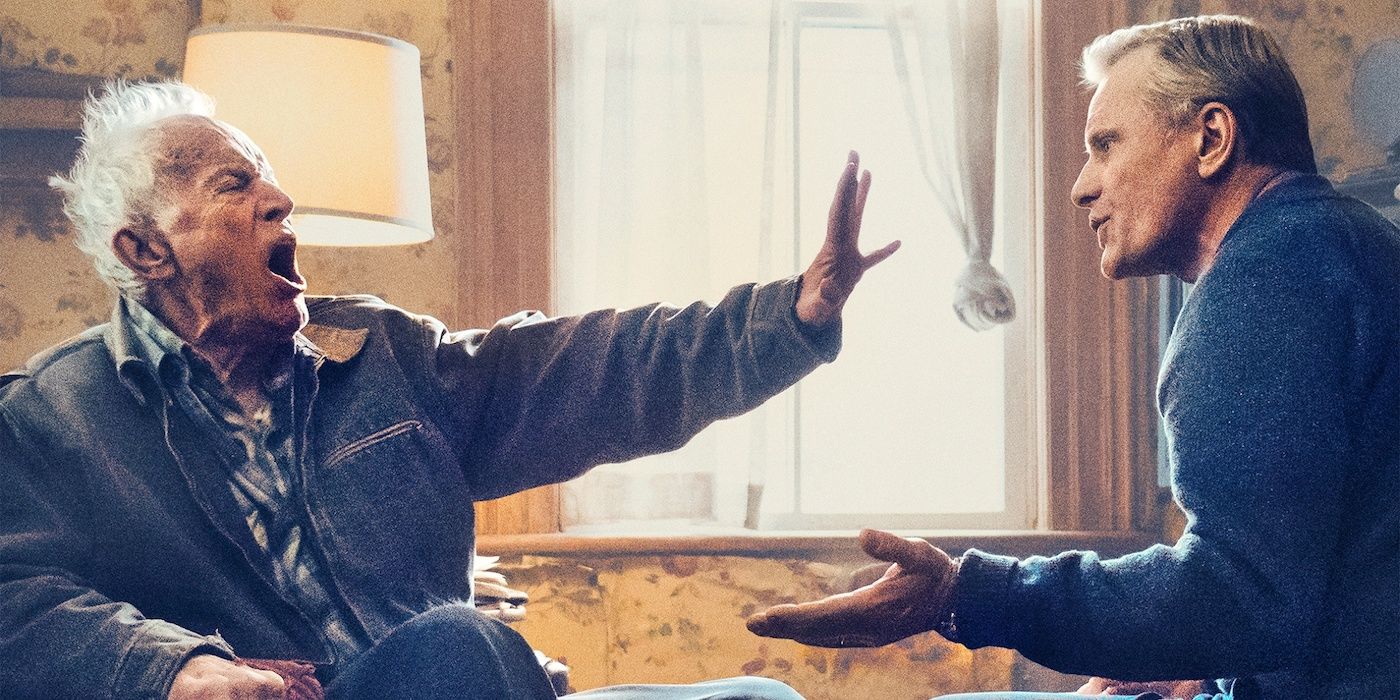From writer/director Viggo Mortensen, the family drama Falling follows John (played by Mortensen), who lives with his partner (Terry Chen) and their daughter (Gabby Velis), as their life gets disrupted by John’s father Willis (Lance Henriksen). In the early stages of dementia, Willis is a very difficult and abrasive man by nature, but even more so now as old family wounds are brought back to fester and they try to find some common ground in the present.
During this 1-on-1 interview with Collider, actor/filmmaker Viggo Mortensen talked about the journey he’s taken to making his feature directorial debut, making good use of the time while waiting to go into production, why he wanted Lance Henriksen for this role, how his early life influenced him as a storyteller, the film school he’s been at on sets, his experience with David Cronenberg, whether he’d be willing to return to the world of The Lord of the Rings, and his memories of making The Prophecy.
COLLIDER: It seems crazy that this is your feature debut as a writer/director. Why now? Was it just the right time, or did it take a long time to get here and now is just when it’s happened?
VIGGO MORTENSEN: Well, it wasn’t my choice to wait this long. I tried 25 years ago, the first time. It was a script that I’d written that was an original story, and I tried to get the financing. I got some money, but not enough. I tried that many times, over the years, with different stories, but just was never able to put the movie together that I wanted to make. Even when I started writing Falling, I was in the middle of trying to get another one financed and I thought it would work, and it didn’t. I guess I’m an optimist. I kept going back, and then hitting a wall again and again.
With Falling, it took a few tries and about four or four and a half years, between writing it and finally getting to do it. I was fortunate that, from the start, when I finished writing it, I approached Lance Henriksen and he said yes. I thought he would just be perfect and do something great and surprise us, and maybe surprise himself. I had no idea that he would give the great performance that I believe he gives in Falling, but I knew that would be something special. He fortunately stuck with it, through thick and thin. We just kept working on the script and getting to know each other.
As frustrating as it is to have to wait, I think we used the time, in terms of fine-tuning the script, thinking about where and how we were gonna shoot, what the crew would be, what the team making this movie could be, who the actors would be, working on the music, and whatever I could think of to do. I was gonna use the time. The good directors that I’ve seen work, they always just keep working. You can never prepare too much or too early. Just use the time. And we did.
With any of those projects that came and went, over the years, are there any that you would still like to get made, or is there no chance of doing any of those past projects?
MORTENSEN: Anything is possible. I like all of them, even that one 25 years ago. They would all make interesting movies. Some of them would be a lot harder to make than others, logistically. One of the stories, for example, is an adaptation. It’s actually the only adaptation. All of the other ones are original. It’s a story that would involve no known actors. It would be impossible, with no English. It’s in several languages, none of which are English, and it would involve a lot of horses. It would be a very difficult thing to do, but not impossible. Maybe if not the next one, maybe the third one, I could get to do that one. Who knows? I keep writing. During the pandemic, I’ve written two new screenplays and I think it’ll be one of those two, hopefully, that I’ll ideally make next year, in 2022, if I can find the money.
I think now that I’ve shown that I can actually make a movie, whether you like it or love it or hate it, and came in on budget and have gotten some good reviews, so it’s not impossible. I understand the reticence. If someone knows you or you’re a relatively familiar face as an actor, it doesn’t necessarily mean that you know how to direct. A lot of directors have directed terrible movies, who were actors before, and then some actors have made good movies. Just by virtue of being an actor doesn’t mean that you know how to direct a movie or that you even know how to direct actors. It depends on what kind of actor you are, how interested you are in what everybody else does on set, and how interested you are in what actors do. Hopefully, the next time won’t take as long.
You’ve worked with some of the best directors and filmmakers out there. At what point in your acting career did you realize that you were also in the middle of a living, breathing film school? Was there a moment that you found yourself paying more attention to that side of things?
MORTENSEN: I’ve always been curious, to the point of being nosy and probably irritating to some people, as an actor in that regard. My interest in the collective aspect of movie storytelling probably started before I had even thought of being in the business. I was always interested in all aspects. I probably got that from my mom, who took me to the movies a lot when I was a kid, and very early. The first time I went to a movie theater to see a movie the whole way through was when I was three with my mom. When I was four, I remember seeing Lawrence of Arabia with her. She would always talk about the story and how things were made and whatever she knew about the people in it.
I’ve always felt that every shoot I’ve been a part of, or every movie I’ve been part of, it’s been like a film school. I’ve always been aware of that. I was a photographer and I wrote before I started trying to be an actor. I was interested in how you took a screenplay to the screen, photographically. And then, as time went by, I was more and more interested in how some teams led by certain directors seem to make it work. They could take even a mediocre or so-so story and make a really good movie. And then, I’ve also seen really good stories be made into so-so movies because they didn’t gel somehow or because the director didn’t know how to communicate in an ideal way, with the crew and the actors.
I’ve just been nosy about asking things like, how do you do this? Why is that? Why are you using that lens? I would just observe and think it was interesting to use those colors in this scene, and then different cooler colors in other seasons, and how there must be a reason for that. I’ve just been curious about it. I’ve always felt that I was learning. Some of the longer shoots, like The Lord of the Rings, which was a long, long shoot, that was a huge film school. In that case, at that time in New Zealand, they had never made a movie like that. There had a history of filmmaking and some good directors, but nothing on that scale. The hundreds of people in that crew, who were mostly New Zealanders, had little or practically no experience, in some cases, making movies. They’d maybe done a little TV, or the odd student movie or small budget movie, so they were learning as they went along. Peter Jackson, who is a brilliant mind that’s able to multitask, on a daily basis, was solving so many small and large problems, overcoming obstacles all the time, and inventing new ways to shoot things and to use equipment to get around logistical, technical and creative problems, it was fantastic to watch that. That was a really long, big semester of film school, that one
You’ve worked with David Cronenberg a few times and you even cast him in this movie. What have you learned from having worked with him on A History of Violence, Eastern Promises, and A Dangerous Method? Is there anything about his directing style that you’ve woven into your own?
MORTENSEN: Not only the movies I’ve worked on and the movies I’ve watched, but also my life experiences, in one way or another, entered into how I approached making Falling, editing it, mixing sound, grading it, and all of that stuff. David is not the only one, but he’s probably the most intelligent and technically savvy director, and one of the best directors I’ve ever seen, in terms of his ability to communicate efficiently with actors and with his crew. The two main things I took from him, generally speaking, was the idea that you can never prepare too much or too early for a shoot, and also that good ideas can come from anybody on your team. It would be stupid not to keep an open mind to listen to them because maybe there’s something useful, no matter how much you plan things out and you know what you’re gonna do, on a day to day basis. That meant so much to me that I said that, on the first day of shooting Falling. I said, “Look, what I’ve learned from the best directors I’ve worked with, including David Cronenberg foremost, is that any of you can come up with a good suggestion or a good question that might provoke another idea that can improve things. So, please don’t wait until tomorrow or the next day to tell me your idea about today’s work because it’ll be too late. It’s practical and helpful, but it also immediately has the potential of making people feel included. It’s not just another job. You can be part of making this movie, in a much bigger way than just your little isolated job on this movie. We’re all in it together.”
That was a good thing to have learned. I don’t know, maybe if 20 years ago, somebody had said, “Okay, we’ll give you two million bucks to make this movie,” maybe I wouldn’t have learned as many things.” I probably avoided some beginner’s mistakes, my first time out, by having had to wait so long.
You mentioned the experience that you had on The Lord of the Rings. What’s it like to know that there’s a TV show now that’s happening? Is that a world that you’d ever be interested in returning to if they found some way to incorporate you in that world again?
MORTENSEN: Yeah, why not? Tolkien, that’s a universe. There are so many influences. The foundation of his stories is Celtic mythology and history, and Nordic mythology and history, and languages. That’s fascinating. There are endless amounts of things you can learn and have fun adapting to the big screen or the little screen. I don’t know much about what they’re doing. I know there’s shooting in New Zealand, so I assume they’re taking advantage of the people there that have gone through it, especially Peter Jackson and his team. I know that it’s [J.A.] Bayona who’s shooting it, and he’s a very good director. That’s all I know. I don’t even know who’s in it. I don’t know what angle they’re taking on Tolkien, or what the Tolkien estate is allowing them to shoot. I don’t even know. I don’t know anything about it, but I’m looking forward to seeing it.
What can you say about the incredible performance that you gave as the devil in The Prophecy? What stands out for you from that experience?
MORTENSEN: Probably working with Chris Walken. That’s someone I’ve known from the beginning of my career. When I used to live in New York, when I first started acting, I got to know him and his wife, and I like him. He’s fun, he’s intelligent, and he’s a great actor. It was a lot of fun to work with him. It was a great honor to be able to rip his heart out of his chest and eat it in front of him. That was a job I got last minute. I got the job, and then I was on a plane the same day, flying to Arizona. And then, the next day, I was shooting. I had to learn this monologue and come up with some stuff. I enjoyed playing that part. I thought, “It’s the devil. What can you make up about the devil?” And then, I thought, “Well, when’s the devil not bad? Is he vulnerable?” It was just a fun exercise, to play that part. I enjoyed myself.
Working with Lance Henriksen must be a dream, as an actor and as a director. What was it like to have him as a scene partner, and then to also watch what he did in this as his director?
MORTENSEN: It was fantastic. He’s a friend. We got to know each other. I met him the first time, in 2007 on the set of Appaloosa, a Western that Ed Harris directed. He seemed charming. He was a good storyteller and very well prepared, as an actor. He had that strong presence and voice, and was everything that I’d seen him do in the movies, and he was a nice guy too. I thought, “I hope I get to work with him someday.” You never know in this business. I hadn’t written Falling then, so I had no idea that I would be directing and acting with him. But when I finished writing the script, I thought Lance Henriksen would be great in this role because everything he’s done, no matter how crazy the genre or unclassifiable it might be or how small the part or how bizarre everything around him might be, he’s always credible, always believable, and one hundred percent committed to whatever he’s doing. He’s not only skillful, but he’s hardworking and commits fully, and he’s not looking to have the audience like him necessarily. He just plays the part the way it’s supposed to be played and goes for it, one hundred percent. He’s played some very strange and scary people in his life, and he always goes for it, completely. You have no idea what you’re gonna meet when you meet him, so I was happy to see that he’s such a nice, calm guy, who’s really thoughtful and funny. I thought, “Well, he’s got the ability. I know people haven’t given him a role like this before, other than in the series Millennium, but not in movies.” He’s done hundreds of movies. I haven’t seen them all, but he’s always good in anything I’ve seen.
I was just hopeful that he would like it and wanna do it and be available, and fortunately he did. He’s very honest. I said, “What do you think?” and he said, “It’s terrifying. I don’t know if I can do this. But I like it and I like the way it’s written. It’s a difficult part. I’m gonna have to go some places that are gonna be a challenge for me, emotionally, because I don’t wanna be caught acting.” That’s the one thing he always said to me, “I don’t wanna get caught acting.” I said, “I don’t think that’s gonna happen, but I’ll do my best.”
As it turned out, I ended up deciding to act in it because I thought it’d be a little easier to raise the money and we could continue our relationship into the movie, and it was wonderful. It was great to have that front row seat, which was the best seat in the house, really. I was eye to eye with him in a lot of moments, watching him construct that performance, which I think is unforgettable. I think it’s a performance that will stand the test of time, whether he gets the recognition that I think he deserves right now. I hope he gets recognition now from people, from critics, and from everybody because I think he deserves it. It’s an extraordinary, memorable performance. But whatever happens now, at the time of its release, that performance is gonna stand out, years from now. If he doesn’t get the recognition he deserves now, people are gonna say, “Why not?” That’s one of those kinds of performances.
Falling is now in theaters, and available on VOD and on-demand.

